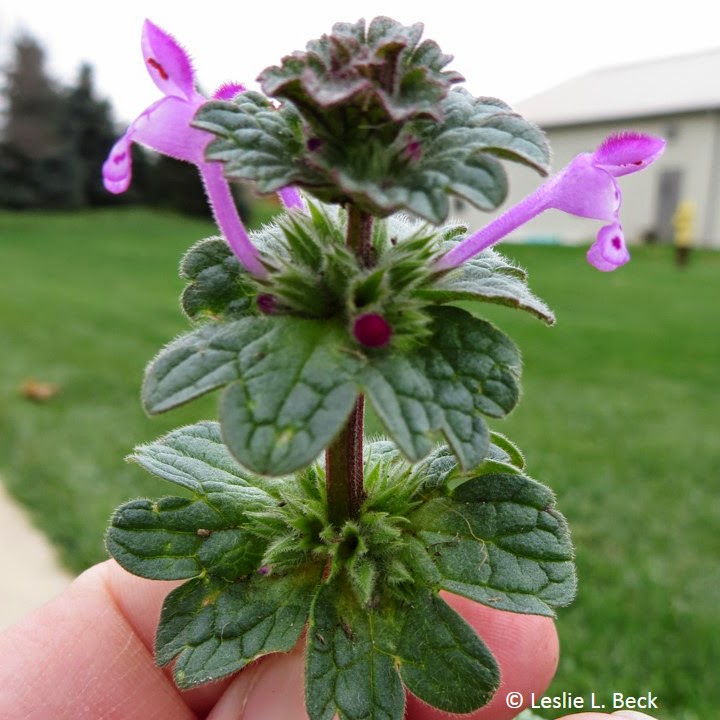Henbit: Weed Control Indianapolis
What Is Henbit?
Henbit, or Dead-Nettle is a non-native winter weed. It is an annual herb with a sprawling habit and short, erect, squarish, lightly hairy stems. It can be best identified by its purple or maroon top foliage and its pink flowers. Henbit germinates in mid to late fall and flowers in the spring. Henbit dead-nettle is probably native to the Mediterranean region but has since spread around the world. 
How To Control Henbit.
Cultural practices that promote a dense, vigorous turf are the best way to reduce annual broadleaf weeds. For example, proper fertilization and weed control. Likewise, irrigation to prevent drought stress, and aerification of compacted soils. These are all cultural practices that can be used to manage weeds in turf. This weed can be controlled by using both preemergence and postemergence herbicides. However, postemergence herbicides that contain 2,4-D, dicamba, floroxypyr, triclopyr, and others will best control henbit when the plant is small in autumn.
Where Does Henbit Grow?
Henbit can be found in the lawn, in flower beds, in gravel drives and in farm field that are winter vacant. It propagates freely by seed. Henbit becomes a key part of a meadow ecosystem. Sometimes entire fields will be reddish-purple with its flowers before spring ploughing. Where common, it is an important nectar and pollen plant for bees, especially honeybees, where it helps start the spring build up.
Henbit In The Environment.
Henbit is widely naturalized in eastern North America. However, its attractive appearance, edibility, and readiness to grow in many climates often mean it is permitted to grow when other weeds are not. This plant is not regarded as a threat to local ecosystems. Also, this plant plays an arguably beneficial role in its environment. It provides nectar to pollinators and forage for animals. Also, the seed is eaten by many species of birds. The leaves, stem, and flowers of the plant are edible. They have a slightly sweet and peppery flavor, similar to celery.
Need Weed Control Help?
As always, if you need any help with fertilization and weed control, feel free to give our office a call at 317-748-3153. We service Indianapolis, Broad Ripple, Meridian Kessler, Westfield and Fishers. We know sometimes it is best to bring in the professionals to take care of the dirty work. If you wish to request a free estimate via our website, click here.